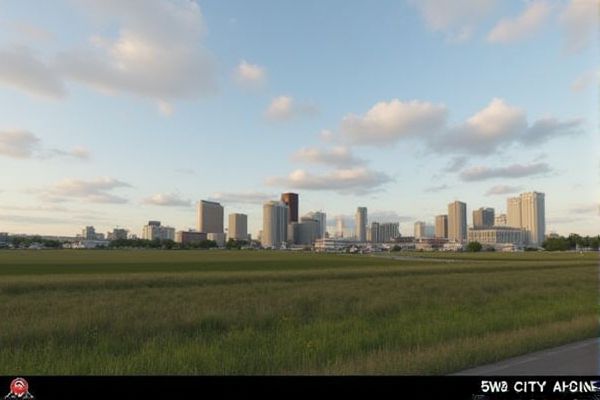
Local laws and regulations in North Dakota: State income tax rates. Sales tax regulations. Property tax requirements. North Dakota DUI laws. Hunting and fishing permits. Land use and zoning laws. Employment and labor regulations. Tenant and landlord rights. Vehicle registration process. Building code standards.
State income tax rates
North Dakota has a progressive state income tax system with three brackets: 0% for income up to certain thresholds, 1.95% for income between those thresholds and higher limits, and 2.50% for income above those higher limits. The specific income ranges vary by filing status, with no local income taxes imposed by cities. For more detailed information and to calculate your specific tax obligations, you can visit the North Dakota Paycheck Calculator on SmartAsset.
Sales tax regulations
In North Dakota, the sales tax rate is 5% at the state level, with additional local taxes ranging from 1% to 3.5%, resulting in total rates of 6% to 8.5%. Remote sellers must collect sales tax if they exceed $100,000 in annual sales or 200 transactions, and all sellers must register and file returns through the North Dakota Taxpayer Access Point (TAP) portal.
Property tax requirements
In North Dakota, property taxes are due on January 1, with a 5% discount available for payments made by February 15, and they become delinquent after March 1. The taxable value of residential property is 9% of the assessed value, which is 50% of the market value, and property taxes fund local services such as schools and public safety.
North Dakota DUI laws
In North Dakota, DUI laws mandate that drivers with a BAC of 0.08% or higher can be charged, with stricter limits of 0.04% for commercial drivers and a zero-tolerance policy for drivers under 21. Penalties include fines, jail time, and license suspensions, with severity increasing for repeat offenses and higher BAC levels. For more information on these regulations and the consequences of violating them, you can visit the North Dakota Department of Transportation website.
Hunting and fishing permits
In North Dakota, residents and nonresidents age 16 and older need fishing licenses, with exceptions for residents on military leave and nonresident full-time students. Hunting licenses vary by residency, age, and game species, requiring proof of residency and sometimes hunter education courses, and can be purchased online or in-person through the North Dakota Game and Fish Department.
Land use and zoning laws
In North Dakota, land use and zoning laws are governed by the North Dakota Century Code, which grants County Commissioners the authority to regulate the location and use of buildings, structures, and land to promote health, safety, and public welfare. These regulations include setting zoning requirements, enforcing zoning ordinances, and managing non-conforming uses, all of which must be consistent with state laws and consider the character and suitability of each district. For more detailed information, the North Dakota Century Code can be consulted through the official website.
Employment and labor regulations
In North Dakota, employment and labor regulations encompass various critical aspects aimed at maintaining fair workplace practices. These include the at-will employment doctrine and the prohibition of discrimination under the North Dakota Human Rights Act. Employers are mandated to provide overtime pay under the FLSA for hours exceeding 40 in a workweek. Additionally, there are strict requirements for wage records and reporting, alongside specific rules for the employment of minors. Furthermore, employers must ensure to provide a final paycheck on the next regularly scheduled pay date and guarantee equal compensation regardless of gender. Compliance with workers' compensation and unemployment benefit laws is also essential. For more detailed insights, refer to the North Dakota Employment Guide, which offers comprehensive information on these regulations.
Tenant and landlord rights
In North Dakota, tenants have the right to a habitable rental unit meeting health, structural, and safety standards, with landlords responsible for maintaining the property and addressing repairs promptly. Tenants can deduct repair costs from rent if landlords fail to act. Meanwhile, landlords have the right to enter the property for maintenance, inspections, and showings. They can also pursue evictions for lease violations, ensuring a balanced relationship with tenants. For more detailed information, refer to the North Dakota Landlord Tenant Laws provided by the American Apartment Owners Association.
Vehicle registration process
To register a vehicle in North Dakota, you must obtain a title, proof of insurance, a bill of sale, and a Certificate of Vehicle Inspection. You then need to complete the Application for Certificate of Title and Registration of Vehicle form (SFN 2872) and submit all documents along with the required fees at a local NDDOT office.
Building code standards
The North Dakota State Building Code is composed of the International Building Code (IBC), International Residential Code (IRC), International Mechanical Code (IMC), and International Fuel Gas Code (IFGC), with updates effective January 1, 2023. Local jurisdictions are required to adopt and enforce these codes, however, they have the flexibility to amend them as needed to conform to local specifications. For more detailed information, you can refer to the North Dakota State Building Code guidelines available on the state’s official website.
